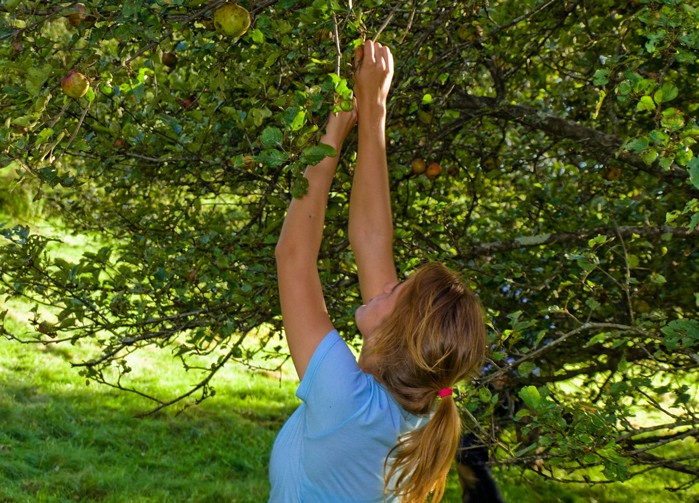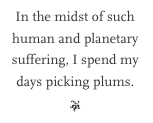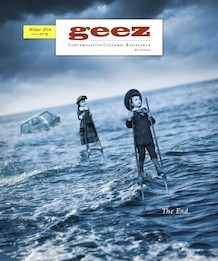Monastic Life at the End of Days

Picking apples. Credit: Alex Melman, https://www.flickr.com/photos/somekindofartist/2954339861
This summer, I am not listening to the radio.
This is not a news fast, but a practicality. I live in Switzerland, at a silent, contemplative monastery. We get our news three days a week when Sister Laurenne reads the headlines out loud during lunch. There are usually some collective exhales as wars escalate and human tragedy seems exponential. But then Laurenne sits down to eat her lunch and things return to normal. I feel guilty about that. In the midst of such human and planetary suffering, I spend my days picking plums, doing laundry, and sitting in silent prayer. Can I call myself a Christian? And a radical one at that? But, after a difficult year, where pushing forward in radical service turned painful and sour, I realized I had to face my own internal apocalypse before I could be faithful to the world’s.

I am uneasy about the sense I get from a lot of young, radical Mennos that the only way to deal with the apocalypse is to run headlong into it, to throw everything into bringing about the “new heaven and new Earth.” Sometimes, I’m totally down with that. I’ve done some things that I would label “apocalyptic activism,” and that my parents have labelled “absolutely nuts and totally unsafe.” I’ve done some guerrilla gardening, campaigned against GMOs, attempted to break up some gang fights (in my hot-pink jacket, no less), and I even adopted a dying baby nobody wanted, which felt pretty end-times to me. But after all that, I am still left with the sense that this cannot be the only way to face these times.
So here I am in Switzerland at a monastery. Realizing that I can hear the beat of my heart for the first time in months, I think that silence, and the simple quiet of prayer, too, is apocalyptic.

Internally, my life here feels like little apocalypse after little apocalypse. Where my work in “real life” is mental, strategizing, chattering, here I only worry about climbing the trees safely. In June, while attending to cherries and cassis, I was flooded with suppressed anger and sadness over my relationship with my mother. In July I picked plums. While maneuvering around the old, lichen-encrusted branches, I was awash in grief for all the children in my life who have died, and for my own wonky relationship statuses and inability to be a mother right now. In August, as the weather turned cooler and the rain finally let up, I picked ripe apples and pears while acknowledging how huge a hold money has over my life and my absolute lack of real trust in God’s provision. None of these things were fun. The pain was sometimes so acute it was physical. But as August came to an end and I prepared to head back to Ohio, I began to see how the silence I lived in allowed me to be honest with myself, and God, and would actually open me to more genuine activism in the future.
Silence, then, is radical. I get why we avoid it. But perhaps the apocalyptic nature of monastic life isn’t only about facing our inner selves; it is also a sign, a “parable” about interdependence, community, and faithfulness during and despite these end times.
One thing I learned is that making a lifetime commitment to one community, one people, one family is profoundly radical. Because to give your life to silent prayer, silent meals, and uncomplaining poverty is to give your life to the belief in the primacy of faithfulness. And at the heart of faithfulness is another radical belief: that everything isn’t up to us, that God still lives, still speaks, still moves. It is to hear the words of the angels and of Christ: “Do not be afraid.” It is to see love and God’s presence as the deepest wellspring of hope, and its final fulfillment.
Caitlin Michelle Desjardins serves as the coordinator of faith formation at a Presbyterian church in Ohio; in her spare time she plays harp and plays with her dog. She values silence in her life and continues her attempt at monasticism.



Sorry, comments are closed.